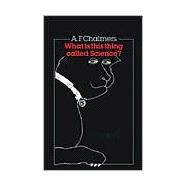| Preface to the first edition | xi | ||||
| Preface to the second edition | xiv | ||||
| Preface to the third edition | xvi | ||||
| Introduction | xix | ||||
|
1 | (18) | |||
|
1 | (3) | |||
|
4 | (1) | |||
|
5 | (5) | |||
|
10 | (2) | |||
|
12 | (2) | |||
|
14 | (4) | |||
|
18 | (1) | |||
|
19 | (8) | |||
|
19 | (3) | |||
|
22 | (2) | |||
|
24 | (2) | |||
|
26 | (1) | |||
|
27 | (14) | |||
|
27 | (2) | |||
|
29 | (2) | |||
|
31 | (7) | |||
|
38 | (2) | |||
|
40 | (1) | |||
|
41 | (18) | |||
|
41 | (1) | |||
|
41 | (2) | |||
|
43 | (2) | |||
|
45 | (4) | |||
|
49 | (4) | |||
|
53 | (5) | |||
|
58 | (1) | |||
|
59 | (15) | |||
|
59 | (1) | |||
|
60 | (1) | |||
|
61 | (4) | |||
|
65 | (4) | |||
|
69 | (4) | |||
|
73 | (1) | |||
|
74 | (13) | |||
|
74 | (1) | |||
|
75 | (3) | |||
|
78 | (3) | |||
|
81 | (2) | |||
|
83 | (1) | |||
|
84 | (2) | |||
|
86 | (1) | |||
|
87 | (17) | |||
|
87 | (4) | |||
|
91 | (1) | |||
|
92 | (9) | |||
|
101 | (2) | |||
|
103 | (1) | |||
|
104 | (26) | |||
|
104 | (3) | |||
|
107 | (1) | |||
|
108 | (4) | |||
|
112 | (5) | |||
|
117 | (2) | |||
|
119 | (3) | |||
|
122 | (2) | |||
|
124 | (5) | |||
|
129 | (1) | |||
|
130 | (19) | |||
|
130 | (1) | |||
|
131 | (5) | |||
|
136 | (2) | |||
|
138 | (3) | |||
|
141 | (3) | |||
|
144 | (4) | |||
|
148 | (1) | |||
|
149 | (12) | |||
|
149 | (1) | |||
|
150 | (5) | |||
|
155 | (2) | |||
|
157 | (2) | |||
|
159 | (2) | |||
|
161 | (13) | |||
|
161 | (2) | |||
|
163 | (5) | |||
|
168 | (3) | |||
|
171 | (2) | |||
|
173 | (1) | |||
|
174 | (19) | |||
|
174 | (1) | |||
|
175 | (2) | |||
|
177 | (4) | |||
|
181 | (6) | |||
|
187 | (5) | |||
|
192 | (1) | |||
|
193 | (20) | |||
|
193 | (1) | |||
|
194 | (4) | |||
|
198 | (4) | |||
|
202 | (3) | |||
|
205 | (5) | |||
|
210 | (2) | |||
|
212 | (1) | |||
|
213 | (13) | |||
|
213 | (1) | |||
|
214 | (3) | |||
|
217 | (4) | |||
|
221 | (4) | |||
|
225 | (1) | |||
|
226 | (21) | |||
|
226 | (1) | |||
|
227 | (5) | |||
|
232 | (1) | |||
|
233 | (5) | |||
|
238 | (3) | |||
|
241 | (2) | |||
|
243 | (3) | |||
|
246 | (1) | |||
|
247 | (7) | |||
|
253 | (1) | |||
| Notes | 254 | (2) | |||
| Bibliography | 256 | (8) | |||
| Index of names | 264 |








